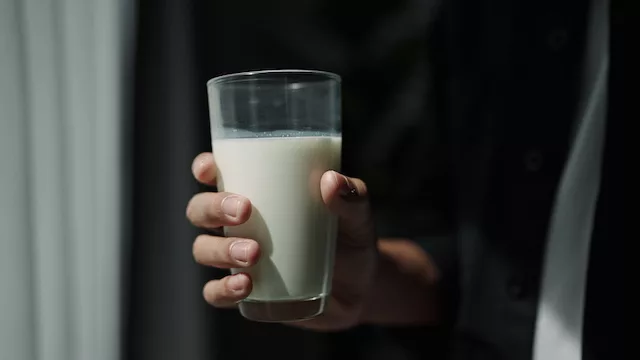7 Viral Food Trends RDs Urge You to Ditch in 2025
In 2024, numerous viral food trends and controversial dietary takes circulated on social media and in mainstream news. Some of these trends may be dangerous to follow...
Lauren Manaker, a dietitian based in Charleston, South Carolina, explains, "Food trends often go viral due to social media influence, celebrity endorsements, and attractive promises. It's important for consumers to prioritize evidence-based nutrition over fast fads."
As we look ahead to 2025, dietitians share which viral food trends should be left behind and provide tips for focusing on evidence-based nutrition.
7 Food Trends to Leave Behind in 2025
1. Avoiding Seed Oils at All Costs
Brooklyn-based dietitian Maddie Pasquariello explains that the fear around seed oils is unfounded. Instead of completely avoiding them, she suggests being mindful of intake and replacing saturated fats with unsaturated fats.
2. Taking Olive Oil Shots
Pasquariello advises against taking shots of olive oil, recommending more moderate ways to incorporate healthy fats into your diet.
3. Drinking Raw Milk
Consuming raw milk poses serious health risks, and Pasquariello urges caution against falling for the misleading claims about its benefits.

She emphasizes the importance of following safe practices like pasteurization.
4. Juice Cleanses and Detox Diets
Manaker warns against the limited scientific evidence supporting the claims of juice cleanses and detox diets. She recommends a balanced diet rich in whole foods for long-term health benefits.
5. Vilifying False ‘Toxins’
Pasquariello cautions against the fear-mongering around toxins in conventional foods, emphasizing the importance of a diverse and colorful diet, avoiding ultra-processed foods, and regular exercise.
6. Hypervigilance Over Glucose Spikes
Pasquariello dispels the myth that a single high-carb meal can lead to diabetes, emphasizing that type 2 diabetes develops over time due to energy surplus, not just carb intake.
How Diet and Exercise Impact Blood Sugar Levels
When your body's cells become resistant to insulin due to excess energy intake, they stop taking up glucose effectively. This leads to a rise in blood sugar levels, which can eventually damage the pancreas and result in poor blood sugar control and diabetes. Genetics also play a role in this process.
To prevent these issues, it's important to maintain a healthy calorie intake and stick to a consistent exercise routine over time.
Linking Foods to Cortisol Levels
Cortisol, often known as the stress hormone, plays a vital role in providing energy and maintaining focus. It naturally rises after meals, so there's no need to avoid specific foods to lower cortisol levels. Managing stress effectively and getting enough rest are key to keeping cortisol within normal ranges.
What Makes a Food Trend Legit?
Before jumping on the bandwagon of a new food trend, it's essential to separate fact from fiction by conducting thorough research. Look for credible sources such as reputable organizations and registered dietitians, and verify claims with scientific studies. While skepticism is healthy, it's important to trust in established sources of information for the sake of public health.
Prioritizing mindful eating, balanced meals, portion control, hydration, and regular exercise can contribute to optimal health outcomes.
Food Trend FAQs
Are all food trends bad?
Not all food trends are negative. Some trends, like the Mediterranean diet, are backed by evidence and promote health. It's crucial to evaluate the credibility of sources and claims before following a trend.
How can I tell if a trend is credible?
Look to registered dietitians, peer-reviewed studies, and unbiased media outlets for reliable information on food and diet trends.
What’s the best diet for me in 2025?
There is no one-size-fits-all diet. Focus on eating a variety of whole foods, including fruits, vegetables, lean proteins, healthy fats, and whole grains. Consult a registered dietitian for personalized dietary advice based on your individual needs and preferences.
